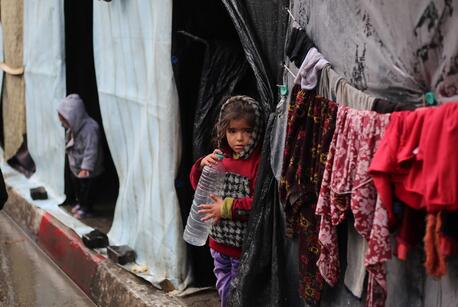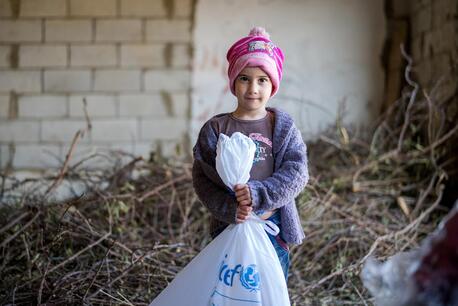
Parenting: Protecting Your Child's Mental Health at Every Age
Some guidance for parents and caregivers on how to build a foundation for good mental health at different stages of childhood and adolescence — and when to seek outside help.
Supporting a child's emotional well-being as they age
There are many ways parents and caregivers can help protect their children's mental health.
Keeping lines of communication open, for example, and having regular conversations throughout a child's life can go a long way toward supporting their emotional well-being and spotting potential problems early.
The guidance below is not comprehensive nor is it designed to replace interventions by experts. Consider seeking help if worrisome behavior persists for a few weeks or longer, causes distress for your child or your family and/or interferes with your child’s functioning at school, at home or with friends.
If your child’s behavior is unsafe, or if your child talks about wanting to hurt themselves or someone else, seek professional help immediately.
Tips for parents and caregivers of children aged 5 or younger
Your child looks to you for love, learning and safety. Try to spend as much time together as possible. Fostering a warm and tender relationship and helping your child feel safe and cared for will lay the groundwork for a lifetime of good mental health.
All children are sad, anxious, irritable, or aggressive at times, and emotions can change quickly and often. It is not uncommon for young children to occasionally have trouble sitting still, paying attention or interacting with others. In most cases, the behavior is a typical developmental phase.
Parents and caregivers of children aged 5 and younger are advised to:
- take time to play, cuddle, talk, sing and read to children
- encourage children to play with other kids
- let them help you with small chores, like putting toys away
- set clear boundaries, without shouting or other demeaning behavior
- reassure children who seem overwhelmed or stressed
- acknowledge and help children understand their feelings
Seek help when children are:
- having frequent tantrums or are often intensely irritable
- complaining frequently of stomachaches or headaches with no known medical cause
- lethargic
- lacking interest in socializing or making friends
Tips for parents and caregivers of children aged 6 to 10
At this stage, a child's physical, mental and social skills are developing rapidly. They are learning to describe experiences and talk more about their emotions. Friendships become more important. They start to experience peer pressure. By spending more time outside home, they are gaining a sense of responsibility and learning to be independent.
Parents and caregivers of kids aged 6 to 10 are advised to:
- ask children about their day at school, their friends and normal everyday events like homework or sports to check in on their feelings and help surface any trouble spots
- involve children in household tasks you're working on
- give children more responsibility — assign chores, let them make decisions for the family, like what to have for dinner, encourage after-school activities
- praise accomplishments and acknowledge good behavior
Seek help when children:
- talk a lot about fears or worries
- are in constant motion
- sleep too much or too little
- are struggling academically
- repeat actions or check things many times out of fear that something bad might happen
Tips for parents and caregivers of kids aged 11 to 13
At this stage, kids' brains are undergoing some big, important changes. They are more aware of social status and more vulnerable to stress. They may be experiencing additional peer pressure around sex, alcohol and drug use.
And while kids at this age may know more about these things, they often lack the skills to deal with them. Knowing that they can talk to you about their worries or problems can make a world of difference.
Parents and caregivers who notice troubling changes in a preteen kid's mood or behavior are advised to:
- gently tell them you've noticed a change and ask if they would like to talk about it
- actively listen to what they are saying — without letting your thoughts and judgement guide the conversation — and be respectful of their opinions
- ask how you can help
- have regular, informal conversations with your child even if no problems are evident, and keep lines of communication open
- check your child's online accounts to make sure they aren't victims of cyberbullying or child predators; make sure they understand appropriate online behavior
Seek help when a kid:
- has lost interest in things that they used to enjoy
- is sleeping too much or too little, is sleepy throughout the day or seems to have low energy
- is spending more and more time alone and avoiding social activities with friends or family
- is engaging in self-harm, such as cutting
- is having thoughts of suicide
Tips for parents and caregivers of teens aged 14 to 18
Social media defines today's teens, many of whom are spending more time online and with friends than with family. And virtual connections come with their own pitfalls and stressors. They may encounter disturbing content or online bullying. Screen time can lead to a decrease in physical activity and affect their sleep.
Kids aged 14 to 18 are also more likely than younger kids to engage in sexual activity and substance abuse.
Parents and caregivers of teens are advised to:
- have regular casual conversations with your teen about these issues; ask how they are doing; talk to them about staying safe around their friends and in relationships
- check in regularly and maintain an open line of communication; knowing they can come to you with their issues makes it more likely that they will do so
- encourage kids to participate in activities such as sports and volunteering; ask them to assume more responsibility in the family, helping with laundry, for example or cooking dinner
- track their online media and social habits and talk about the time they spend online and how to stay safe from harassment and bullying
- establish rules about appropriate digital behavior and content
- encourage kids to put away their phones and power down their computers well before bedtime so they can get a good night's sleep on a consistent basis
- increase the odds your teens are consuming healthy meals by having everyone in the household eat together as often as possible
Seek help when teens are:
- excessively dieting, exercising or expressing outsized fears of gaining weight
- smoking, drinking, using drugs or engaging in other types of risky or destructive behavior, either alone or with friends
- experiencing periods of highly elevated energy and activity and sleeping a lot less
- saying that they think someone is trying to control their mind or that they hear things that other people cannot hear
- are having thoughts of suicide
It's especially important for parents and caregivers of children of all ages to keep weapons and dangerous substances — including prescription drugs — safely stored or locked away. An impulsive kid with access is a dangerous combination.
Related reading:
Support your child's mental health
How to Talk to Your Children About Conflict and War
8 Strategies to Keep Your Child Safe — Online and Off
Protecting Your Child From Cyberbullying
How to Protect Your Child From Violence, Exploitation and Abuse
Teaching Your Child Healthy Habits




